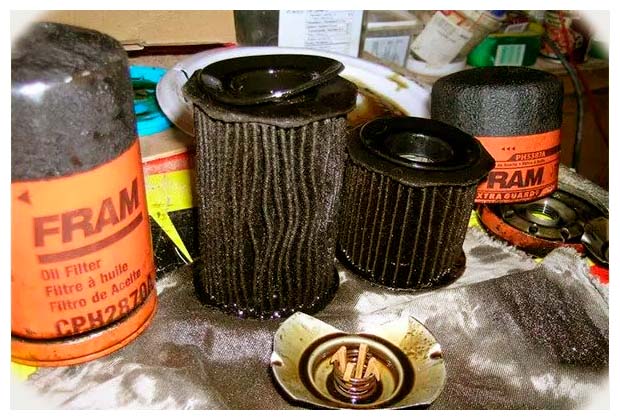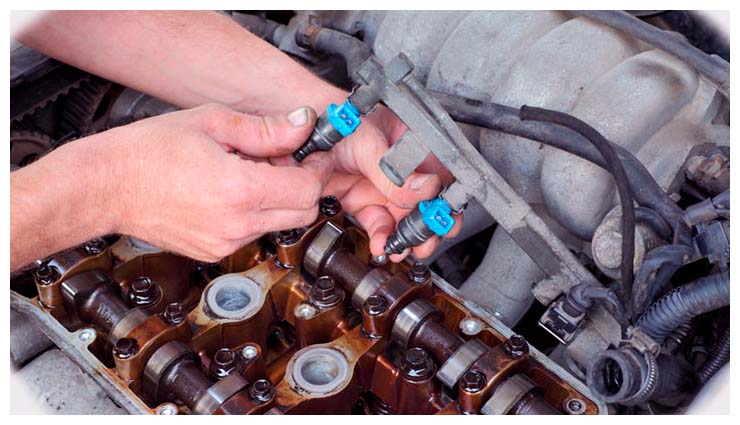Lifter ticks can be a major annoyance and even have the potential to cause engine damage over time, so it’s important to know how to address them. In this comprehensive guide, we’ll explain what causes lifter ticks and the symptoms associated with them, as well as provide solutions on how to stop a lifter tick in your vehicle.
Causes of Lifter Tick
There are many potential causes of lifter ticking, including:
-
Low Oil Pressure: Low oil pressure can prevent the valves from controlling the oil flow, resulting in a loud ticking noise.
-
Dirty or Worn Oil Filter: A dirty or worn oil filter can prevent the proper amount of clean oil from reaching the valvetrain components, leading to excessive friction and increased noise.
-
Faulty or Damaged Valvetrain Components: Broken valve springs may not be able to control their respective valves properly, which could lead to excessive friction and noise when opening/closing during combustion cycles. Additionally, camshaft lobes that are cracked or worn out could also cause excessive friction between moving parts due to an incorrect profile being used during combustion cycles.
-
Incorrectly Adjusted Valves or Lifters: Improperly adjusted valves or lifters will cause excessive friction between them and the camshaft, which can lead to a ticking noise.
-
Carbon Buildup in the Combustion Chamber: Carbon buildup in the combustion chamber can also cause a loud ticking noise due to it causing interference with normal valve operation.
-
Poor Quality Fuel Injectors: Low-quality fuel injectors can result in too much fuel entering the combustion chamber, increasing carbon buildup that could lead to engine rattling and a loud ticking noise.
-
Other Causes of Lifter Ticks: There are other potential causes of lifter ticks, such as worn piston rings, incorrect engine timing, worn rocker arms/push rods, and more.
Symptoms of a Lifter Tick
The most common symptom of a lifter tick is an audible tapping sound originating from the top part of your vehicle’s engine compartment when it’s running (specifically from the valvetrain components). Additionally, you may notice decreased power output due to reduced air/fuel intake resulting from improperly functioning valves/lifters.
Solutions for Stopping a Lifter Tick
Fortunately, there are several solutions to help stop a lifter tick in your vehicle:
-
Check and Replace the Oil Filter: The first step is to make sure that you have a clean and properly working oil filter. If not, you should consider replacing it with a new one.
-
Change the Oil and Add an Anti-Friction Supplement: Changing the oil in your vehicle regularly is important for the health of your engine, and it’s even more important when dealing with lifter ticks. Consider adding an anti-friction supplement to reduce friction between moving parts as well.
-
Inspect and Replace any Faulty/Damaged Parts: If any of your valvetrain components are faulty or damaged, it’s important to identify which ones need to be inspected/replaced to fix the issue.
-
Adjust Valves or Lifters as Needed: If you suspect that valves or lifters are incorrectly adjusted, make sure they are properly adjusted according to manufacturer specifications to prevent excessive friction between them and the camshaft.
-
Clean Carbon Buildup from Combustion Chamber: If carbon has built up in your combustion chamber, it’s important to clean it out to prevent interference with normal valve operation.
-
Replace Old or Faulty Fuel Injectors: If you have old or faulty fuel injectors, consider replacing them with new ones to ensure that the correct amount of fuel is entering your combustion chamber.
-
Check for Other Issues: Finally, make sure to check for any additional issues that could be causing the lifter tick, such as worn piston rings, incorrect engine timing, worn rocker arms/push rods, etc.
Conclusion
Lifter ticks can be a major annoyance, but thankfully there are ways to address them. By following the steps in this guide, you should be able to stop your lifter tick and get your vehicle running properly again. Be sure to keep up with regular oil changes, use good quality oil filters, and inspect/replace any faulty/worn components that may be causing the issue. Additionally, consider adding an anti-friction supplement to reduce friction between moving parts and keep your engine running at peak performance.


 Dirty or Worn Oil Filter: A dirty or worn oil filter can prevent the proper amount of clean oil from reaching the valvetrain components, leading to excessive friction and increased noise.
Dirty or Worn Oil Filter: A dirty or worn oil filter can prevent the proper amount of clean oil from reaching the valvetrain components, leading to excessive friction and increased noise. Clean Carbon Buildup from Combustion Chamber: If carbon has built up in your combustion chamber, it’s important to clean it out to prevent interference with normal valve operation.
Clean Carbon Buildup from Combustion Chamber: If carbon has built up in your combustion chamber, it’s important to clean it out to prevent interference with normal valve operation.
Add Comment